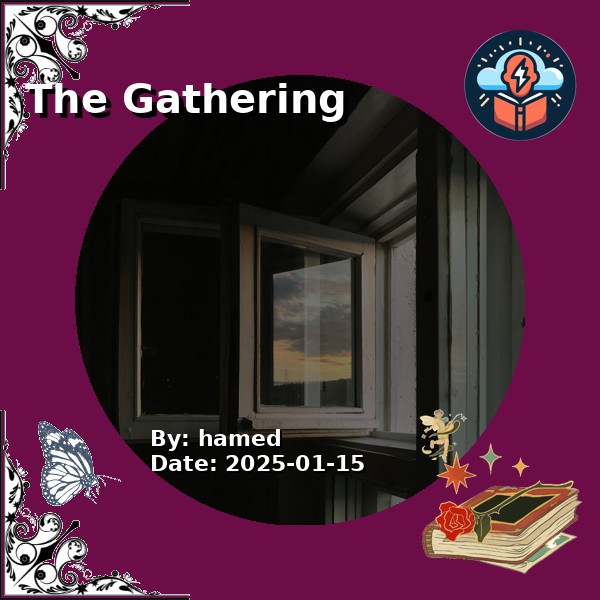The sun dipped low behind the mountains, casting a golden glow over the valley where the red earth met the tall trees. Mara sat on the edge of the fire pit, her fingers tracing the patterns of the ancestral symbols carved into the stone. Her grandmother’s voice echoed in her mind, as it often did in moments like this.
“Our stories are in the land, in the air, in the rivers. We are the land, and it is us.”
Mara closed her eyes, trying to summon the strength that had been passed down through generations. The fight for recognition, for justice, had been long and weary. But this... this was different. Something had shifted. People were listening now.
For decades, the land that her ancestors had cared for, nurtured, and fought for had been taken from them—first by colonizers, then by corporations, each one extracting resources, desecrating sacred sites, and leaving behind nothing but the scars of their greed. The elders had told stories of the old days when the land was whole, when the community thrived in harmony with the earth. But over time, the stories had been drowned out by the noise of development, of laws that disregarded the lives and cultures of the people who had lived there for millennia.
But now, the voices of her people were rising again.
Mara had seen the signs for years. The younger generations, like her, were no longer content to let their history be silenced. They were reclaiming what had been lost. It wasn’t just land—it was identity. It was culture. It was dignity.
That afternoon, the community had gathered in the old meeting hall—an ancient building that had survived decades of neglect. The walls were lined with photographs of her ancestors, their faces strong and resolute, their eyes telling stories that had been buried beneath time. The room buzzed with the energy of determination.
Mara stood, stepping forward as the room fell silent. She was nervous, but her voice was clear.
“We’ve spent so long waiting for permission. For someone to recognize our rights. But the truth is—we don’t need anyone’s permission to reclaim what’s ours.” She paused, looking out at the faces of the elders, the activists, the young people who had come together for this moment.
Her uncle, Jarek, stood beside her, his face a mask of quiet resolve. He had been at the forefront of the movement, rallying against the corporate land grabs, leading protests, and demanding justice. His work had opened doors, brought attention, but he knew the true fight wasn’t won with words alone—it was won by standing on the land itself.
“The time has come,” Jarek said, his voice carrying through the room. “To take back what was stolen. To return to our roots, to our history, to the land that holds the stories of our ancestors.”
Mara felt a rush of emotion, the weight of the moment sinking in. This was it—the beginning of something bigger than all of them.
Outside, the wind whispered through the trees, and Mara could hear the faint beat of the drum, echoing from the hilltops. The ceremony was starting, a call to the spirits of the land, asking for their blessing as the community prepared to march toward the contested territory. It was land that had been sold, desecrated, but it was also land that held the stories of her people. Her grandfather’s bones rested there. Her mother’s laughter had once filled the air as children ran barefoot across the soil.
They had waited long enough.
Mara joined the others outside, walking with purpose, her feet stirring the dust of the earth she had known all her life. The march was slow at first, then picked up pace, as if the land itself was urging them forward. One by one, people from every generation joined, some carrying signs, others simply walking in silence, their faces a portrait of hope.
As they reached the edge of the land in question, Mara knelt, placing her hand on the soil. The earth was dry and cracked in some places, but there was a vibrancy underneath it all. The smell of pine and sage filled the air, mingling with the sweat of their bodies, the energy of hundreds of hearts beating as one.
“This is ours,” Mara whispered, her voice breaking the stillness. “We belong here.”
Jarek stood beside her, his hand resting on her shoulder. “We’ve always belonged here. And we’ll make sure the world knows it.”
In that moment, Mara understood the true power of what they were doing. It wasn’t about fighting against something—it was about fighting for something, for the future of their children, for the preservation of their stories, for the land that had never abandoned them.
The drums grew louder as the sun dipped beneath the horizon, and the community gathered in unity, ready to face whatever came next. There would be challenges, there would be resistance, but Mara knew that as long as they stood together, as long as they stayed true to their roots, they couldn’t be defeated.
For the first time in a long while, she felt the weight of history shift—not just on her shoulders, but on the shoulders of her people, as they reclaimed the land, the culture, and the justice that was theirs by right.
